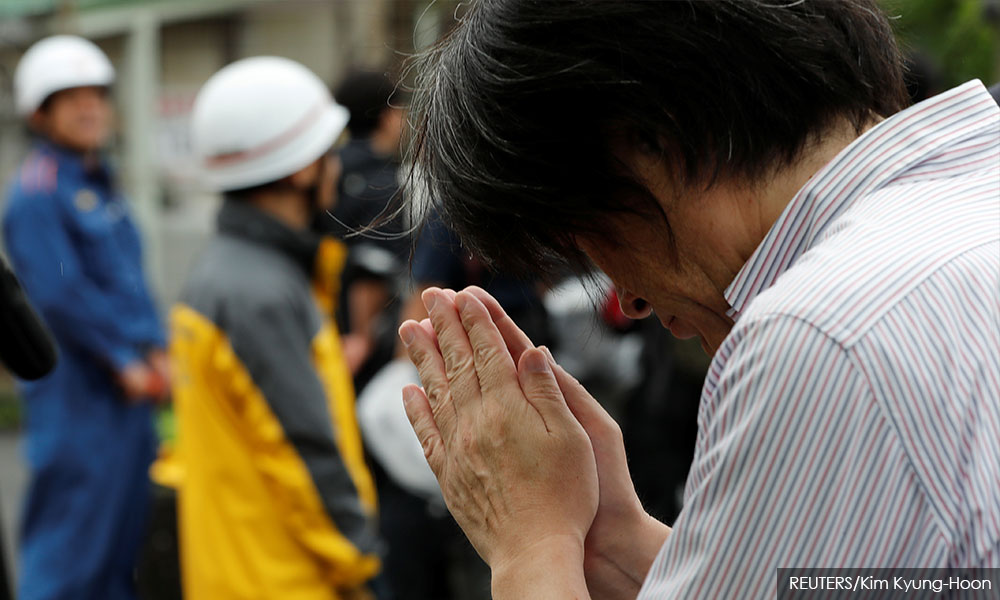COMMENT | Most people’s favourite song now I would say is the Happy Birthday song.
Because of the Covid-19 pandemic we are told to - apart from staying at home and observe social distancing - wash our hands. With sanitiser but preferably with soap and water.
We are told to scrub both hands thoroughly, washing the fingers, thumbs and the whole hand for at least 20 seconds before washing off the lather and drying our hands with towels or tissues. Only then would the virus be disabled.
In other words, washing lightly or just rinsing our hands with water won’t do it.
Twenty seconds is the magic number. But how would we know that we have washed our hands for 20 seconds? Do we need to time our washing routine with a timer or a stopwatch? Yes, we can do that if we want.
But there’s an easier way to keep time. We just have to sing the Happy Birthday song (out loud or softly depending on how capable our vocal cords are) or hum the tune when washing our hands.
The singing or humming must be done twice. Apparently it takes 20 seconds to sing or hum the Happy Birthday song twice at the normal tempo. Not too fast and not too slow.
Hence so many people are singing the tune twice every time they are at the sink and washing their hands. Based on that I would say the song we have been singing all this while to celebrate the anniversary of a person’s birth is currently everybody’s favourite as we fight the coronavirus.

Speaking of which – what would be the favourite song of our politicians? I would say it’s the Elton John-Bernie Taupin composition Sorry Seems to Be the Hardest Word.
The song, which became a big hit for Elton John, is a mournful ballad about a romantic relationship which is falling apart.
Whether they are big fans of John or not, our politicians as I see it have their own take on it. I mean they see the message of the song differently from how the British superstar had put it.
To our politicians it literally is sorry seems to the hardest word. Especially if they are holding big positions in government. Being ministers for example.
We have seen this before and we continue to see it now. When politicians including ministers shoot off their mouths, saying things they shouldn’t say. Like racist rants and sexist remarks and even making sweeping statements. And they do not apologise. Even after their mistakes have been pointed out to them.
Most times they would stand firm to show so-called credibility and firmness. When things get heated up they would, yes you guessed it, blame the media for “misquoting” them or taking their remarks “out of context”.
However, when confronted by evidence in the form of audio or video recordings on what they had said, they would take a small step back to say sorry. Sort of. But not in the way you and I would say it when we had wronged people.
Trust our ministers and fellow politicians to come up with an ingenious way to say it. And it goes like this: “I don’t mean it the way you viewed it, that’s not what I meant”.
And here it comes: “I am sorry you felt that way. I am sorry you see my remarks that way”. In short, they can say sorry without actually saying sorry. They have given apologising a totally new meaning.
To me, that’s not an apology. What they do is make it sound as if the people they have hurt in the first place are the ones to be blamed for feeling what they are feeling. For that they are sorry. But they are not sorry for making their remarks in the first place.
Apart from that, they would opt to keep mum and put up a stone wall until the issue just dies down. I say this is a much-used tactic when ministers commit mistakes in making sweeping statements against other politicians or groups of people. And of course the media.
Why is it hard for people in general to apologise for mistakes they make?

Experts on human behaviour say apologising can make some people feel vulnerable or feel like they are in danger of losing their power and status.
Others simply equate saying “I’m sorry” with admitting they are inadequate or incompetent which makes admitting mistakes so much harder to do. And some people find saying they are sorry humiliating.
Hence to people who cannot or who find it hard to apologise, I’ll just say this to them. I feel sorry for you for not being able to say sorry.
MOHSIN ABDULLAH is a freelancer who writes about this, that and everything else.
The views expressed here are those of the author/contributor and do not necessarily represent the views of Malaysiakini.


